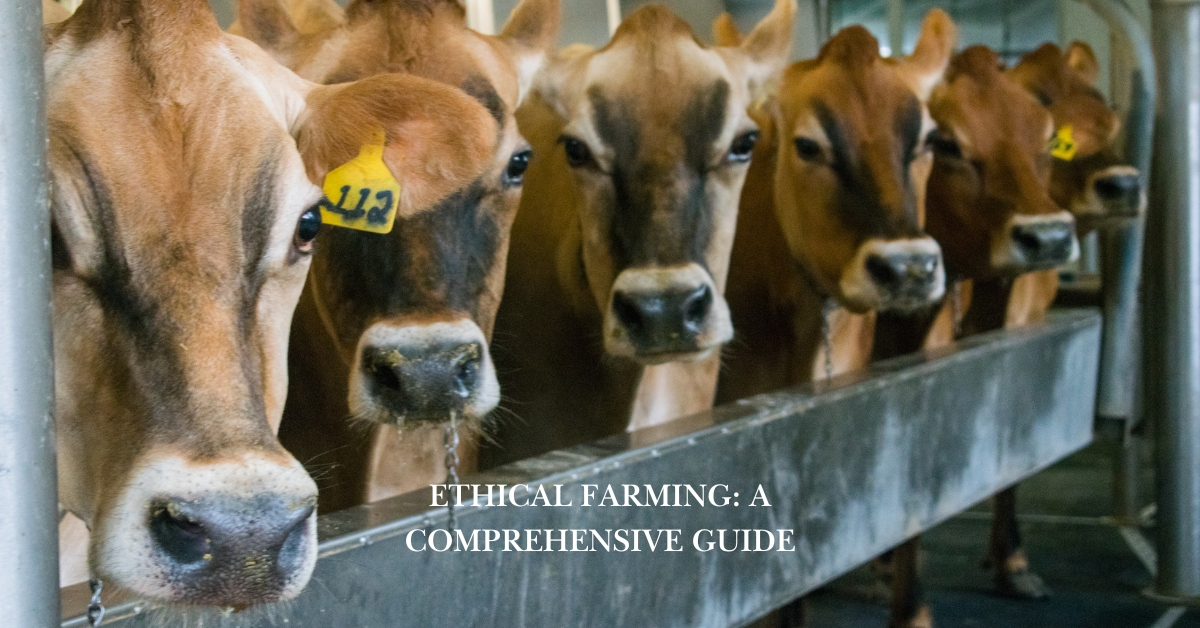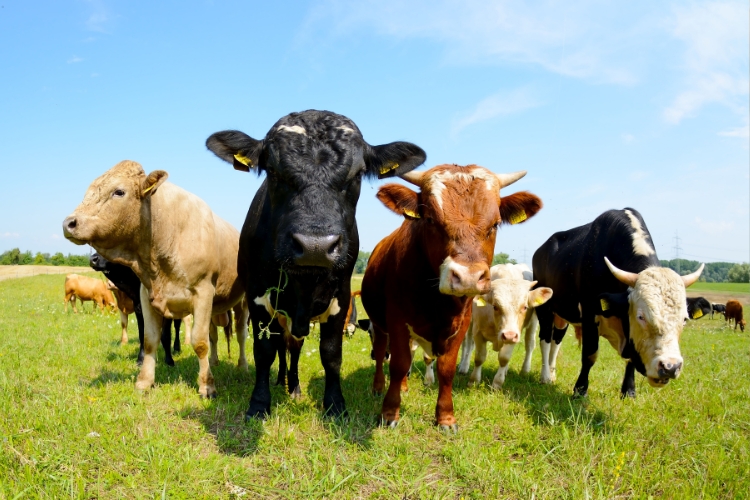In an era of heightened awareness about food production, ethical farming practices rapidly shift from a niche concept to a widespread expectation.
Consumers are increasingly concerned about the origins of their food and the impact of conventional farming practices on animal welfare, the environment, and society.
This blog article explores the principles, benefits, challenges, and future trends shaping the ethical farming movement.
Key Takeaways:
- Ethical farming prioritizes animal welfare, environmental sustainability, and responsible management practices – a shift from industrial agriculture.
- Animal welfare is at the core of ethical farming, focusing on creating a comfortable, stress-free environment and allowing natural behaviors.
- Sustainable practices like minimizing environmental impact and responsible manure management are crucial in ethical farming.
- Transparency and accountability through openly sharing farming practices and engaging with consumers build trust in ethical farms.
- Despite initial higher costs, ethical farming benefits animal health, the environment, consumers, and farmer profitability.
- Challenges include higher production costs, limited market access, consumer awareness, and cultural barriers – which innovative technologies and collaboration can help address.
- Consumers play a key role in supporting ethical farms through purchasing decisions and engaging directly with producers.
- The future of ethical farming looks promising as demand grows, technology advances and collaborative efforts promote sustainable practices.
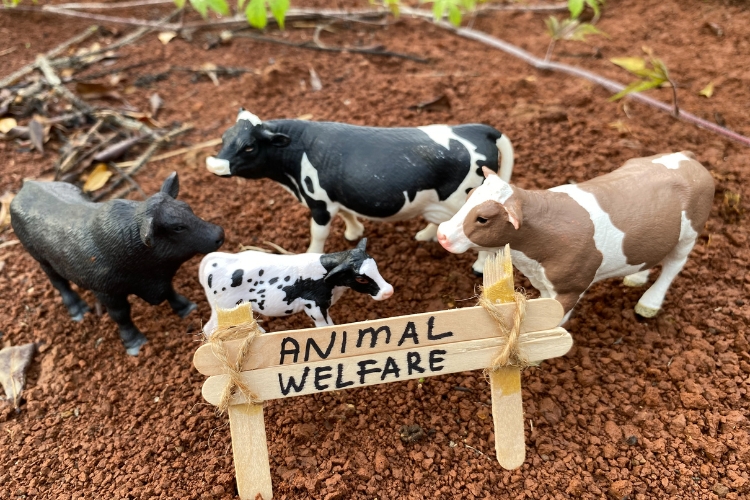
Core Principles of Ethical Farming
Ethical farming is a holistic approach to agriculture that prioritizes animal well-being, environmental sustainability, and responsible management practices. It represents a significant departure from the industrial model of agriculture that has dominated food production for decades.
1. Animal Welfare
At the heart of ethical farming lies a deep respect for animal welfare. This principle extends beyond simply meeting basic needs for food, water, and shelter. It encompasses creating an environment that allows animals to thrive and express their natural behaviors.
- Comfortable and Stress-Free Environment: Ethical farmers strive to minimize stress for their animals by providing spacious living areas, access to fresh air and sunlight, and opportunities for social interaction.
- Natural Behaviors: Ethical farming recognizes the importance of allowing animals to engage in behaviors that are instinctual to their species. This includes grazing, foraging, exploring, and socializing.
- Respecting Telos and Integrity: The concepts of telos and integrity, developed by philosophers like Bernard Rollin, provide ethical frameworks for evaluating the quality of animal lives in farming systems. Telos refers to the natural needs and behavioral drives that are characteristic of a species, while integrity encompasses the wholeness of an animal’s being, including its physical, mental, and social well-being.
- Ethical Considerations for Specific Practices: Certain practices common in industrial agriculture, such as beak trimming in poultry production and the use of gestation stalls for pigs, raise ethical concerns. Ethical farmers carefully consider the potential impact of these practices on animal welfare and explore alternatives that prioritize the animals’ well-being.
2. Sustainable Practices
Ethical farming acknowledges the interconnectedness of agriculture and the environment. It emphasizes minimizing the environmental impact of livestock production and preserving natural resources for future generations.
- Minimize Environmental Impact: Ethical farms adopt practices that reduce their footprint on the planet. This includes minimizing pollution from manure and agricultural runoff, conserving water, and reducing greenhouse gas emissions.
- Rotational Grazing and Manure Management: Rotational grazing, a system where livestock are moved between different pastures, promotes soil health, encourages plant diversity, and minimizes the risk of overgrazing. Responsible manure management prevents water contamination and can even be used to generate renewable energy.
3. Transparency and Accountability
Ethical farmers believe in open and honest communication with consumers. They are willing to share information about their farming practices and answer questions about animal welfare and product origin.
- Openness About Farming Practices: Ethical farmers are transparent about how they raise their animals and the methods they use to produce food. They may offer farm tours, provide detailed information on their websites, or engage in conversations with consumers at farmers’ markets.
- Answering Consumer Questions: Ethical farmers welcome questions from consumers about their practices and are committed to providing honest and informative answers. They see this dialogue as essential for building trust.

Historical Context
Understanding the historical evolution of agriculture is crucial for appreciating the importance of ethical farming. The shift from traditional animal husbandry to modern animal science has had profound implications for animal welfare.
- History of Animal Husbandry: For centuries, farmers practiced animal husbandry, a system that emphasized a close relationship between humans and animals. Farmers had a deep understanding of their animals’ needs and behaviors and viewed their livestock as partners in a shared enterprise.
- Shift to Animal Science: The rise of industrial agriculture in the 20th century led to a shift from husbandry to animal science, which often prioritizes efficiency and productivity over animal welfare. This shift has contributed to the development of intensive farming systems that confine animals in ways that restrict their natural behaviors.
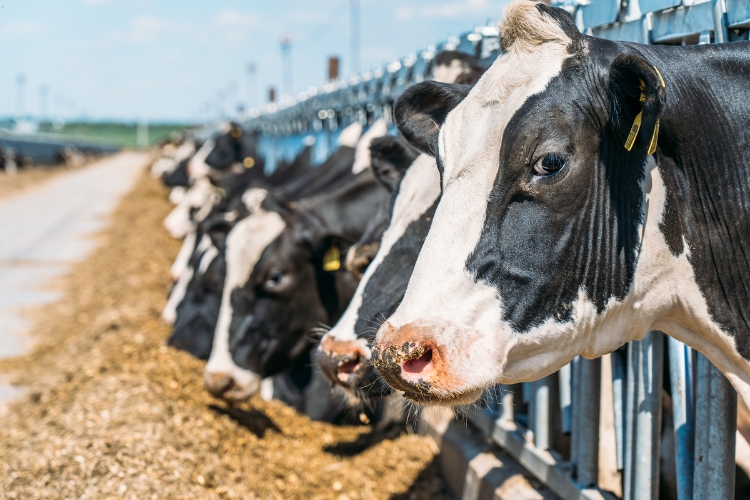
Benefits of Ethical Farming
The benefits of ethical farming extend to animals, the environment, consumers, and even the farmers themselves.
1. Animal Benefits
Animals raised on ethical farms experience a higher quality of life, leading to better overall health and well-being.
- Healthier and Less Stressed Animals: Ethical farming practices result in animals that are less stressed and have stronger immune systems, making them less susceptible to disease.
- Expression of Natural Behaviors: Allowing animals to express their natural behaviors, such as grazing and socializing, contributes to their physical and mental well-being.
2. Environmental Benefits
Ethical farming practices promote a more sustainable and resilient food system that protects the environment for future generations.
- Soil Health and Biodiversity: Practices like rotational grazing improve soil health and promote biodiversity, creating healthier ecosystems.
- Reduced Environmental Impact: Ethical farming practices reduce pollution, conserve water, and mitigate greenhouse gas emissions.
3. Consumer Benefits
Consumers who choose ethically raised products enjoy peace of mind, knowing they are supporting a more humane and sustainable food system.
- Peace of Mind: Knowing that the meat they consume comes from animals raised in humane conditions provides consumers with peace of mind.
- Exceptional Taste and Quality: Ethically raised meat often has a superior taste and quality due to the animals’ healthier diets and lower stress levels.
4. Farmer Benefits
Ethical farming practices can lead to long-term economic benefits for farmers, despite the initial challenges.
- Increased Profitability: Although ethical farming practices can be more expensive in the short term, they often lead to increased profitability over time due to factors such as improved soil health, reduced reliance on expensive inputs like fertilizers and pesticides, and a growing consumer demand for ethically raised products.
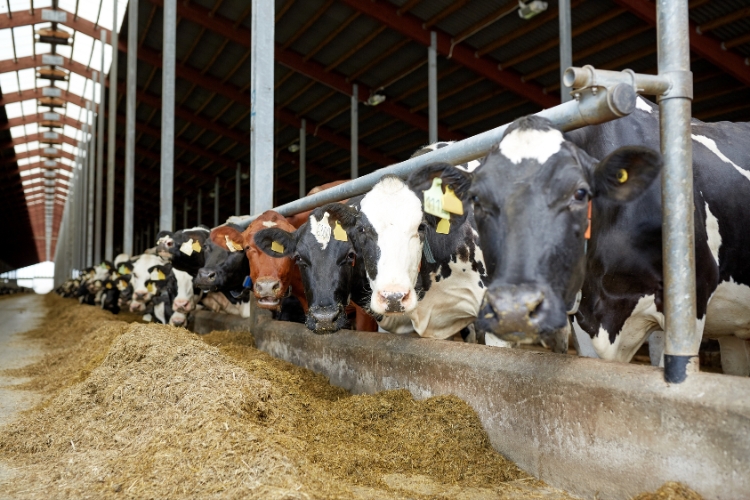
Challenges of Ethical Farming
Despite its many benefits, ethical farming faces several challenges, including higher production costs, limited market access, consumer awareness, and cultural barriers.
| Challenge | Description |
|---|---|
| Higher Production Costs | Ethical farming practices can be more expensive than conventional methods, as they may require more land, labor, and time. |
| Limited Availability | Ethically raised products are not always readily available in all markets. Consumers may need to seek out specialty stores, farmers’ markets, or direct-to-consumer options to find them. |
| Consumer Awareness | Not all consumers are aware of the differences between ethical and conventional farming practices or the benefits of choosing ethically raised products. |
| Cultural Barriers | Changing traditional farming practices can be difficult, especially in regions where intensive agriculture is deeply ingrained. |
Examples of Ethical Farming Practices
Ethical farming encompasses a variety of approaches, all of which share a commitment to animal welfare, environmental sustainability, and responsible management.
- Regenerative Agriculture: This system focuses on building soil health, increasing biodiversity, and reducing the use of synthetic inputs.
- Organic Farming: Organic farming prohibits the use of synthetic fertilizers, pesticides, and genetically modified organisms, promoting healthy ecosystems and producing food free from chemical residues.
- Grass-fed and Pasture-Raised Livestock: These systems prioritize animal welfare by providing livestock with access to pasture and allowing them to graze freely.
- Direct-to-Consumer Sales: Direct-to-consumer models, such as farmers’ markets and online platforms, allow farmers to sell their products directly to consumers, increasing transparency and fostering a more direct connection between producer and consumer.
- Traditional Animal Husbandry: Ethical farming draws inspiration from traditional animal husbandry practices, emphasizing a deep understanding of animal behavior, low-stress living conditions, and knowledge of individual animals.
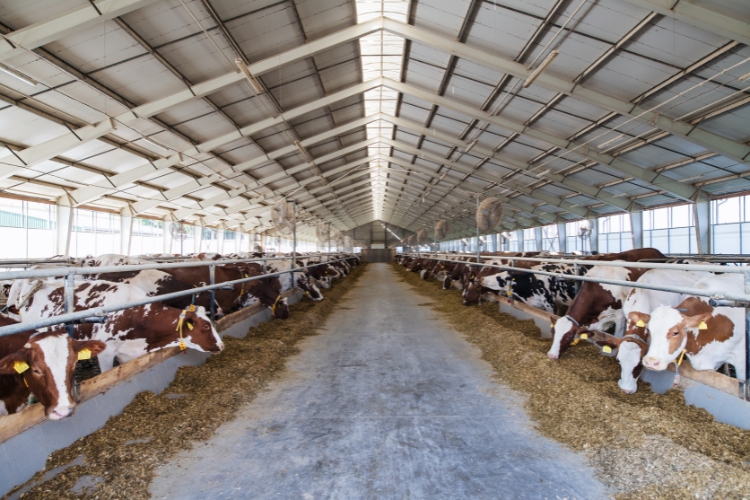
Finding and Supporting Ethical Farms
Consumers play a crucial role in the growth of ethical farming. By actively seeking out and supporting ethical producers, consumers can drive demand for more humane and sustainable practices.
- Shop at Local Farmers’ Markets: Farmers’ markets provide a direct connection between consumers and local farmers, allowing for conversations about farming practices and ensuring the freshness and quality of products.
- Research Brands and Farming Practices: Consumers can research brands and their farming practices by looking for information on labels, websites, and certifications. Third-party certifications, such as Certified Humane and Animal Welfare Approved, can help consumers identify products that meet specific animal welfare standards.
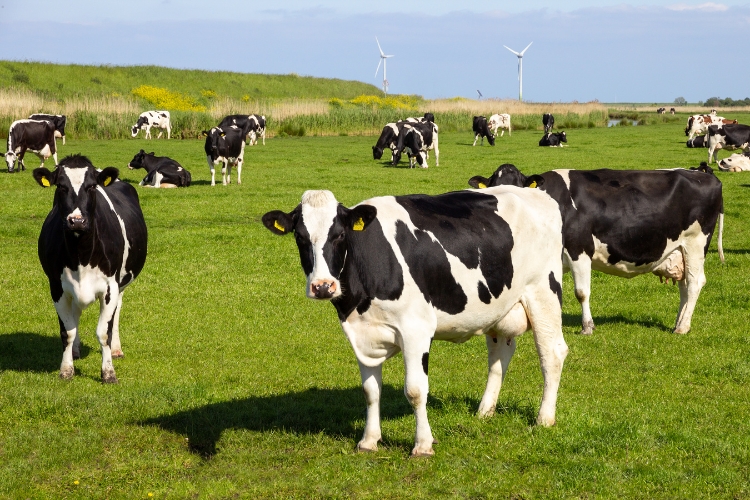
The Future of Ethical Farming
The future of ethical farming looks promising, driven by increasing consumer demand, technological advancements, and collaborative efforts to promote sustainable practices.
- Technology and Innovation: Precision agriculture technologies can optimize resource use, minimize environmental impact, and improve animal welfare by providing farmers with real-time data on animal health, behavior, and environmental conditions.
- Direct-to-Consumer Models: Direct-to-consumer models are expected to continue growing, as consumers seek greater transparency and connection with the origins of their food. Online platforms and community-supported agriculture programs are making it easier for consumers to access ethically raised products.
- Collaboration and Education: Collaboration between farmers, ranchers, retailers, and consumers is essential for promoting awareness and ensuring the long-term success of ethical farming practices. Educational initiatives can help consumers understand the benefits of ethical meat production and empower them to make informed choices.
Conclusion
Ethical farming represents a transformative approach to food production that prioritizes animal welfare, environmental sustainability, and the creation of a more humane and just food system.
By embracing the principles of ethical farming, we can ensure a future where animals are treated with respect, the environment is protected, and consumers have access to high-quality food that they can feel good about eating.
The choices we make as consumers have a significant impact on the direction of agriculture. By supporting ethical farms, we can contribute to a more sustainable and compassionate food system for all.
FAQs
- What are the core principles of ethical farming?
- Animal welfare, including providing a comfortable, stress-free environment and allowing natural behaviors
- Sustainable practices that minimize environmental impact, such as rotational grazing and responsible manure management
- Transparency and accountability through openly sharing farming practices and engaging with consumers
- What are the benefits of choosing ethical farming products?
- Healthier and less stressed animals
- Reduced environmental impact and improved soil health
- Peace of mind for consumers and exceptional taste/quality
- Long-term economic benefits for farmers
- What challenges do ethical farmers face?
- Higher production costs
- Limited market availability of ethical products
- Lack of consumer awareness about the differences between ethical and conventional farming
- Difficulty in changing deeply ingrained cultural practices
- How can consumers support ethical farming?
- Shop at local farmers’ markets to connect directly with producers
- Research brands and farming practices, looking for third-party certifications
- Engage with ethical farmers and ask questions to build trust and awareness

